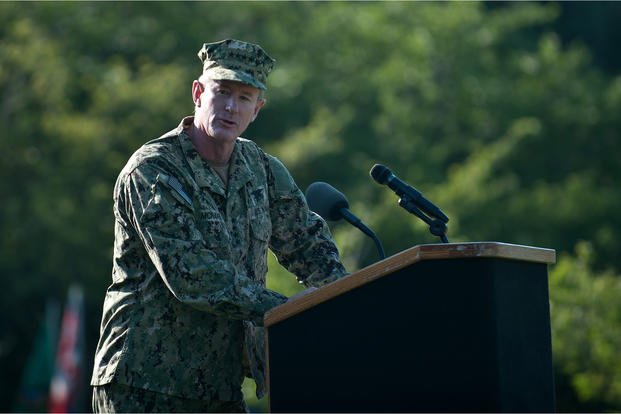WASHINGTON -- Special operations forces will be prepared for any decision made on the post-2014 U.S. military presence in Afghanistan, the commander of U.S. Special Operations Command told Congress today.
Speaking to the House Armed Services Committee, Navy Adm. William H. McRaven cited "great strides" in dealing with current conflicts, preparing for future conflicts and with the state of his workforce.
"SOCOM continues to provide the world's finest warriors to the fight in Afghanistan," he said. "As we approach the end of 2014, your special operations forces will be able to adjust to whatever decisions are made regarding our future employment in that country."
Earlier this week, President Barack Obama ordered Pentagon leaders to prepare for the possibility of a full withdrawal of U.S. forces from Afghanistan by the end of the year if a signed bilateral security agreement is not secured.
"Globally, we are developing plans to better serve the geographic combatant commanders, who, owing to the past 12 years of engagement in Iraq and Afghanistan, have gone under-resourced with special operations forces," McRaven said.
The admiral referred to SOCOM as the Defense Department's "synchronizer for the planning of the war on terrorism," noting the work special operations forces are doing to improve coordination of activities locally, regionally and globally with both the geographic combatant commanders and the U.S. ambassadors.
"I believe the future of special operations will be in helping to build partner capacity with those willing nations who share our interests," he said.
This will mean strengthening existing allied relationships, McRaven said, and building new ones.
"No nation alone can stem the rise of extremism," he said. "We need our friends and allies more now than ever before."
The admiral said SOCOM's future is "inextricably linked" to the general-purpose force and government agencies outside DoD.
"The past 12 years have shown us that a whole-of-government effort is required to be successful," McRaven said. "In special operations, we have always known that without our fellow soldiers, sailors, airmen and Marines, we are destined to fail."
McRaven said the command also has gone to great lengths to take care of what he called his most precious resource: his people.
"The preservation of the force and family ... has already seen a marked improvement in the morale and well-being of those who serve in [special operations forces]," he said.
While there are still issues to be addressed, McRaven acknowledged, he expressed confidence in the health of the force and their families going forward.
"I believe that we have laid the foundation for keeping our force, and their families, strong and resilient into the future," he said.
Want to Know More About the Military?
Be sure to get the latest news about the U.S. military, as well as critical info about how to join and all the benefits of service. Subscribe to Military.com and receive customized updates delivered straight to your inbox.







